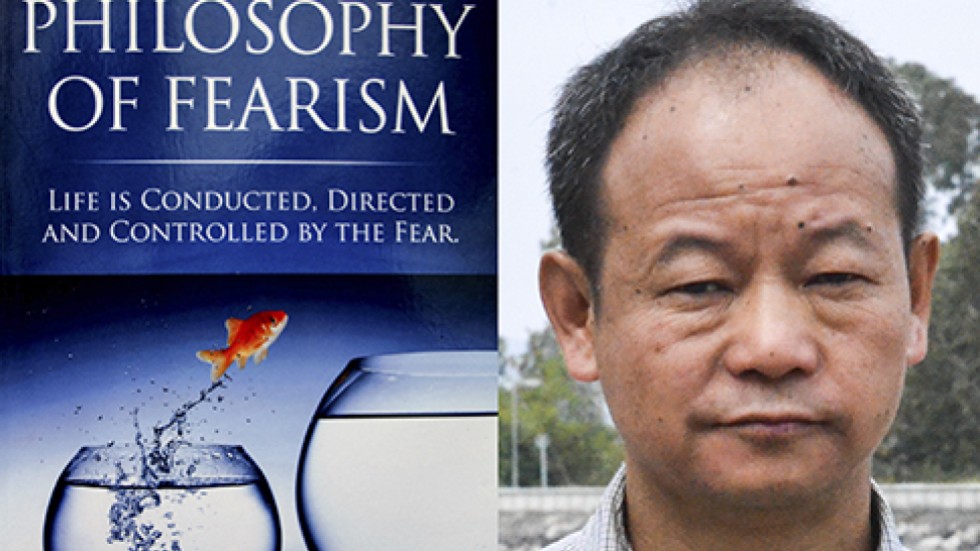Fear is the driver of human progress, Hong Kong author argues
It's a positive as well as a negative emotion, says Desh Subba, who's written a book, Philosophy of Fearism, and will give a talk about it this week.
We live with fear every day and it has been with us since the dawn of human civilisation, Hong Kong-based author Desh Subba argues in a book, Philosophy of Fearism.
Fear plays a big part in our culture - in myths, religious works, literature and philosophy. Its connotations tend to be largely negative. Subba, however, regards fear not in terms of mere phobias, or the “fight or flight” response, but as a part of our wider consciousness and a primary director of life.
The Nepali writer, poet and philosopher will discuss his philosophical theory of "fearism" at the University of Hong Kong Libraries’ Reading Club on March 26. His book, published last year, discusses a wide range of interrelated ideas, including fear as a weapon, a source of courage, as our enemy, as something beautiful and as a means of protection.
Subba contends that fear has been the driving force behind wars and atrocities, but has also been the key to the successful development of human civilisation.
“If fear is divided into two types, black and white, black represents negative characteristics such as violence, murder, crime, conspiracy and ego, etc. White includes characteristics such as civilisation, progress, success, development, friendships, peace, and so on,” he says.
“Looking back to ancient times, we had a fear of natural disasters, hunger and enemies. It was necessary for us to protect ourselves, so we built homes, invented machines and started cultivating land, and so on. To maintain social order, we created constitutions, laws, governments and courts. If there was no fear in society, everybody would be careless, resulting in loss, damage and death. So fear brings us peace and happiness.
“Right now we have fear of Ebola. One day scientists will find a cure and we can be Ebola-free. So fear carries us forward, not backwards. Fear is the source of all invention.”
Subba has been working on his philosophy since 1999, after an unpublished manuscript he shared among friends was returned to him with the word “fearism” underlined. He had not recalled using it, but decided it was an idea worth exploring further.
He says many philosophers have dealt with the subject of fear, but none before him have coalesced their thinking on the subject into a fully formed philosophy.
Subba’s talk is at 6.30pm on Thursday at Special Collections, 1/F, HKU Main Library New Wing.
Philosophy of Fearism is published by Xlibris and is available from Amazon.
http://www.scmp.com/lifestyle/books/article/1746210/fear-driver-human-progress-hong-kong-author-argues



Comments
Good to read more on this. There are so many premises, assumptions, and assertions in this short piece, of which one can read in Subba's (2014) book. If I merely take the phrase here which Subba supports as a foundational premise for his version of a philosophy of fearism, "fear is the driver of human progress" (realizing, that he is defining "fear" in only one particular way to reinforce another premise and theory of fear-positivist thinking--and fear is natural emotion etc.)--then, the philosophical question I am asking him and others to think about is in its logical (hidden expression): IF fear is the driver of human progress, THEN is human progress the driver of fear? I don't see this question asked enough in the discussions of philosophy of fearism.